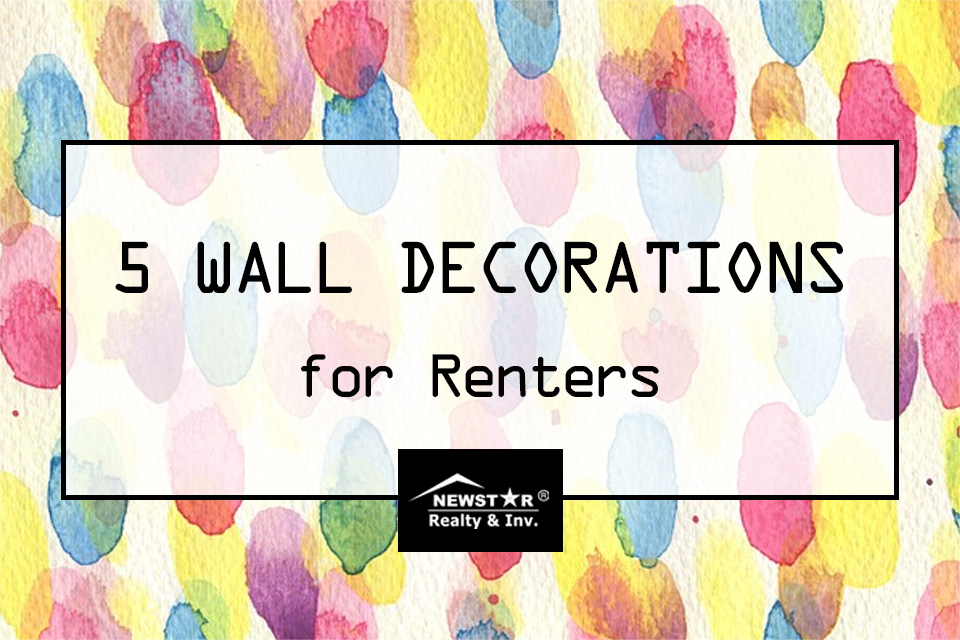


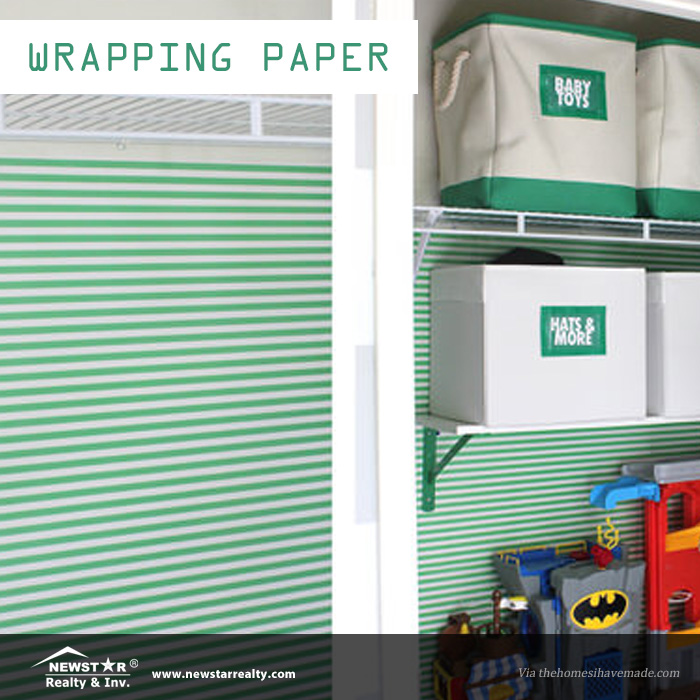




What’s the best way to handle messy tenants – or should you?
Think back to the last time you rented a car. Before returning it, did you deodorize the floor mats, Windex the windows, give it a fresh paint job, and refill all the fluids?
No! And you probably complained about having to top off the gas tank.
Rental car companies don’t bat an eyelash when customers return vehicles in poor shape. They just clean them up, buff out the scratches, rent them out again, and get back to making money.
You, as a landlord, should have this very same mentality. It’s simply unrealistic to expect tenants to polish the countertops after every meal, wax the floors like Cinderella every night, and take immaculate care of every blade of grass in the yard.
I used to lose sleep over sloppy tenants.
I used to lose sleep over this. It would break my heart to see my properties in less-than-ideal condition, and I’d stress out about all the repairs and cleaning I’d need to do after the tenants moved out.
But eventually, I realized that cleaning up after sloppy tenants is just a fact of life for landlords. You can certainly withhold part or all of the deposit for damages, but in the grand scheme of things, if you’re playing your cards right, whatever money it costs is nothing compared with the amount you’re making off rent, appreciation, and tax savings. My life changed when I took my mind off tenant damage and instead focused on getting rich.
My life changed when I took my mind off tenant damage and instead focused on getting rich.
If you find your blood boiling every time you inspect a recently vacated property, change your thinking.
Remember that, ultimately, your tenants are making you rich. For the entire time they rent from you, they’re paying your mortgage, covering your taxes, paying down your principal, and providing you with positive cash flow as your house appreciates. In return, they get a roof over their heads — one you can’t expect them to obsessively clean and maintain.
More often than not, tenants will take decent care of your property; at least, good enough for them to enjoy living in it. But don’t be shocked if, after they move out, your carpet is a little dirty, the walls could use a coat of paint, and the yard needs to be edged. Compared with how much cash your tenants gave you in rent as your home appreciated, fixing that stuff is a small drop in the bucket. At net, you’re still way ahead.
Worst-case scenario, if anything’s horribly expensive, you can always withhold your tenants’ deposits and make them pay for the necessary repairs.
You might be renting out the home you grew up in, but this means nothing to your tenants. They are focused on making their own memories there.
I recommend staying away from the area as much as possible. Don’t drive by the house to reminisce about old times. You’re only going to feel bad when you see the landscaping isn’t how you want it and perhaps how tacky the lawn flamingos in the front yard are.
If you’re friends with the neighbors, do not listen to their gossip. Anything they tell you won’t be helpful. If the tenants are too quiet, they must be creepy and up to no good. If they’re too loud, they must be throwing parties.
I began my landlording career as a big proponent of the DIY approach. I was constantly running around like a madman from property to property, attempting to save money and address maintenance requests myself.
This didn’t last long, though. The final straw was when it took me three trips to Home Depot and about $500 to install a simple shelf in one of my homes — when I could have paid my contractor $100 to do it correctly on the first try. From that day on, I knew that adding “handyman” to my résumé wasn’t worth the fuss, and I started hiring pros.
Whether it’s repairs throughout the year or a deep cleanse after tenants move out, hire someone else to do the dirty work. Go out to dinner with your family instead.
Since learning to love sloppy tenants, my life as a landlord has become infinitely less stressful. Spills on the carpet and nicks on the walls aren’t the end of the world; they’re a part of life.
Take a deep breath, change your mentality, and be grateful that your sloppy tenants make you tens of thousands in appreciation, mortgage pay down, tax savings, and rental income each year.
An entrepreneur at heart, CEO Mike Kalis leads the team at Marketplace Homes, a Detroit-based brokerage that specializes in new construction sales and property management. Marketplace has sold more than $1.5 billion in new construction homes, gained a controlling interest in more than 2,000 single-family properties, and been a four-time Inc. 5000 list awardee.

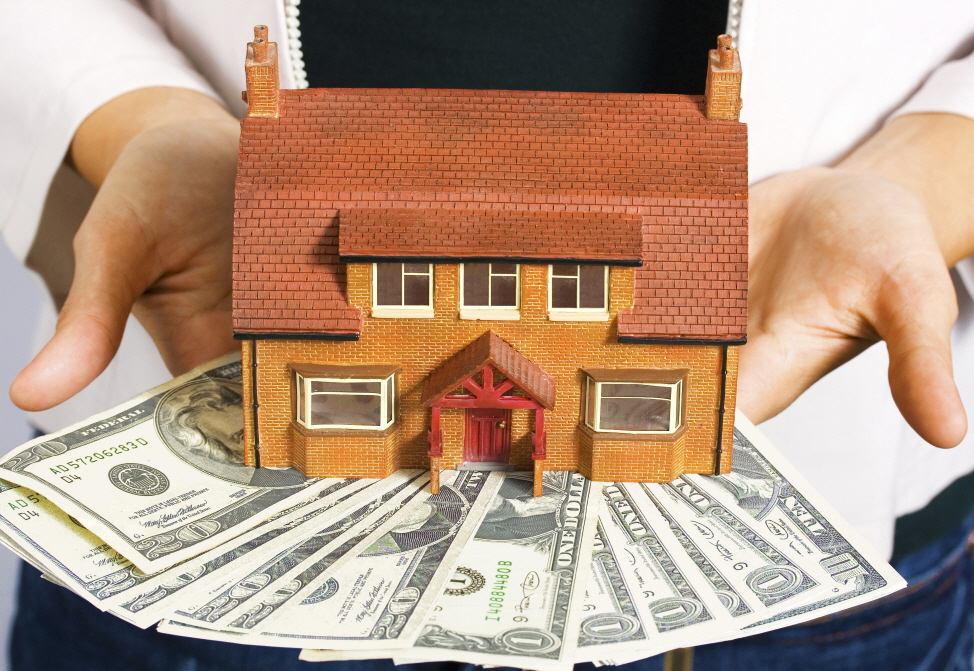
Welcome back to the three-part series: A Beginner’s Guide to Multifamily Investing. If you haven’t already, read Part 1: How to Buy a Multifamily Rental Property.
Why would you want to increase the value of your small multifamily investment property after you emptied your pockets just to purchase it?
First and foremost, you may be able to increase the rent and/or your property value, either of which will further increase your total borrowing power. With value-add investment, you have the option to implement any of the following strategies at a leisurely pace to improve your property incrementally over time. The associated expense is simply the cost of opportunity.
If you have an outdated property that needs cosmetic work or modernization, if you revive the property, it is likely that you could dramatically increase the rent. The rental income from outdated units will land somewhere between modern rates and those from its original era. But an upgraded unit can fetch market rates.
My own strategy is predicated largely on acquiring historic rental properties that need to be improved and then bringing them to the top tier of my local market rents.
If there are common areas in your property, it is very difficult to capture their true value in rent. Whether you give the key to the hallway closet to a tenant or open that space directly into one of the units, increasing the square footage of personal area will also allow you to increase your rentable square footage and total rental income.
This strategy can add value if a property is not the right size or configuration to suit the demographic makeup of its market.
If you have a 3,000 sq ft unit, you might consider splitting it into two 1,500 sq ft units. They will be easier to rent because the total monthly cost will be significantly lower to each tenant and will subsequently reach a larger segment of the population. This will decrease vacancy and may also increase your Gross Scheduled Income.
Accounting, advertising, insurance, lawn maintenance, legal fees, licenses, property management, repairs, and maintenance all add up. Anything that you can do to decrease any of these expenses without sacrificing the quality of the property is all money in your pocket.
Because gas, water, and electricity are all consumable resources that can be used variably by tenants, it is appropriate to have them pay as much of their utility expense as the market will bear in your area.
If the infrastructure of your property is not already metered separately, consider doing so. There is an entire industry built around sub-metering behind your master meter to help allocate expenses to your tenants fairly.
Property taxes fuel the public improvements that make your market a desirable place to live; you want to pay your taxes to keep this cycle flowing, but you don’t want to pay more than your share. If you are able to convince your local appraisal district to lower its book value of your property on the tax rolls, it will noticeably decrease your overall property tax expense.
Evaluate the properties surrounding your house that are similar to craft an argument that illustrates to the authorities how they have over-assessed your property in relation to your neighbors’ properties.
There are a number of strategies to develop secondary sources of income from your rental property. Premium paid parking is an excellent example, as one of your tenants will certainly want to reserve the lone carport in your fourplex for their most treasured automobile. Invariably, shared resources in small multifamily properties are underused or abused if they are not valued fairly.
If your rental rates are significantly below the rest of the market, you may be able to simply increase the rent at the next available opportunity. Even a 3% annual inflationary increase will add up over the years.
In the upcoming and final article of A Beginner’s Guide to Multifamily Investing, we will explore how you can multiply your rental property income over time by recycling equity and leverage.
Ben Bowman is an Architect, real estate agent, investor, and author at AssetsandArchitects


Understanding the basics of a home’s component parts has always been in the real estate agent’s wheelhouse. As internet-connected technologies become part of the package, don’t fall behind the curve.
For the last century, homebuilders and manufacturers have been envisioning ways to make homes smarter, more efficient, and more maintenance-free. But as the Internet of Things (IoT) meets up with smartphone-wielding buyers, the buzz about smart homes is becoming deafening. How do you keep up without getting bogged down in hype? Keep your focus on three things—the definition, the devices, and the data—and on how each of those is changing the home and the transaction.
The term “smart house” was coined in the 1980s by the National Association of Home Builders to refer to a home with integrated telephones, lighting, audio, and security. Such systems required special wiring and typically cost tens of thousands of dollars. But the concept has evolved with the proliferation of inexpensive devices that can be operated via smartphone and can make data accessible online. Now, one real estate franchise is trying to bring about some common understanding of what it means to call a house a smart home.
In May, Coldwell Banker Real Estate LLC joined forces with consumer technology news source CNet to define a smart home as “equipped with network-connected products . . . connected via Wi-Fi, Bluetooth, or similar protocols for controlling, automating and optimizing functions” of the home. Their definition stipulates that the home has internet access, a smart security or temperature system, and at least two other smart features, such as appliances, entertainment devices, heating or cooling equipment, lighting, landscaping elements, air quality monitors, or thermostats.
Danny Hertzberg works on the front lines of smart-home living: the luxury market, where such features have moved “from an impressive amenity to an expected element,” he says. Hertzberg, a sales associate with Coldwell Banker Residential Brokerage in Miami Beach, Fla., and a member of real estate team The Jills, says his franchise’s effort to define a “smart home” is an important step toward eliminating casual or misleading uses of the term.
“It’s false advertising to have a Nest [thermostat] and call it a smart home. You can’t call the whole property a smart home or a smart condo and just have one element,” he says. “We need a nationwide consensus on the marketing terms. Otherwise people will be disappointed.” Or worse, they’ll feel duped.
In the high-end Miami market where Hertzberg works, he’s noticed home owners who are thinking about listing their homes are proactively installing smart-home systems, believing they’ll be at a disadvantage without them.
And with builders now installing smart devices in new construction, it’s only a matter of time before the trend reaches older homes and lower-priced listings, with sellers positioning these devices as points of differentiation. It helps that many smart-home devices can be had for a nominal cost—a few hundred dollars or less. Among the low-cost offerings are the Belkin WeMo switch, which plugs into an outlet and enables you to control lighting through a smartphone or motion sensor; the Amazon Echo, an interactive speaker that lets you use voice commands to access music, news, and more; and, of course, the Nest thermostat, which offers access from your phone and promises to learn your heating and cooling preferences.
Products like Nest have built-in data sharing tools to help potential buyers see themselves in a home, says Matt Flegal, a spokesperson for Palo Alto, Calif.–based Nest. Buyers who are considering a listing with a Nest thermostat, for example, can see the current owner’s app dashboard or the monthly usage email Nest sends to home owners. Although utility companies now offer online access to energy usage information, Nest brings control and usage data together in one package. “It’s a simple thing to do to make a house show better,” Flegal says.
When you’re vying for a listing equipped with smart-home features, Hertzberg suggests having a discussion about which features will convey and how those features improve the current owners’ lifestyle. “Understand why they installed a feature and what they love about it,” he says. For example, maybe they always left the lights on, so smart lighting has been a money-saving solution. Or maybe they entertain frequently, and smart speakers have enhanced the experience.
“As good as you think you are at copywriting, the owners sometimes have these diamonds,” Hertzberg says.
Understanding how smart technology works can make a difference. Hertzberg has seen the unfortunate result of showings where colleagues failed to learn how a system works. “The listing agent comes into the home and doesn’t know how to operate the system,” he says, adding that it’s a real turnoff for buyers. “Even to turn the lights on, they have to call somebody.”
The best way to get to know smart-home technology? Install it at home, Hertzberg suggests.
One attraction of Wi-Fi–connected thermostats is that they enable home owners to track and optimize their energy usage. That data, combined with other available information, can be a boon for real estate agents.
For first-time buyers, in particular, the cost of ownership isn’t always readily apparent. “Energy costs are often the largest cost for the consumer after the mortgage,” says Hunter Albright, senior vice president of new markets for Tendril, a company with offices in Colorado and Western Europe that aggregates smart home technology data for consumers and real estate professionals. Tendril gathers around 300 data points about a property, most from publicly available sources and provides a system for helping consumers optimize their homes to be more energy–efficient. “It’s just more education for the home buyer,” says Albright. “It’s giving people a richer picture of that home.”
“Before a client is a home owner, you can use the [Tendril] tool to get an average of the energy costs,” says Ryan Carter, managing broker of 8z Real Estate in Denver. With tweaks based on possible upgrades and the potential owner’s energy needs, “the system can offer an idea of what a buyer might be looking at.”
Tendril sends 8z’s past clients a bimonthly email about energy efficiency and upgrade ideas. The email offers practical information, such as what makes a home suitable for solar panels or how an energy upgrade may pay off over time. The emails aren’t meant to replace brokers’ contact management systems but to augment them, Albright says. The personalized communications aim to show consumers that they made a smart decision.
Another company working to simplify home owners’ energy decisions is HomeSelfe, a division of Long Beach, Calif.–based Energy DataMetrics. The company’s home energy assessment app walks owners through their home for a snapshot of their home’s energy consumption. “Our free mobile app has you answer a few simple questions about your home and then sends an instant report that provides a picture of your home’s energy use and a personalized path to lowering utility bills,” says cofounder Ameeta Jain. HomeSelfe is one of eight companies currently in the National Association of REALTORS®’ REach accelerator program (narreach.com), which provides mentorship, education, and exposure for companies innovating in the real estate space.
For now, the data being collected by smart-home devices isn’t being curated for use in listing information. Although many MLSs have fields where listing agents can add information about energy savings, they’re not set up to feed in information from smart-home devices—yet. Chad Curry, managing director of NAR’s Center for REALTOR® Technology, says it’s just a matter of time. The Center recently established CRT Labs to help REALTORS® understand and have a voice in the development of smart-home technology.
Organized real estate’s role isn’t yet certain. But CRT’s participation in the U.S. Department of Energy’s Home Energy Information Exchange Accelerator is one cause for optimism. The accelerator is a three-year collaboration between the public and private sectors, with the goal of making home energy information more accessible. “With what we’re doing and the way we’re seeing MLSs respond, I think we’ll have this in two to three years,” Curry says. “Our vision is that none of this stuff would be entered by the real estate professional. It would be automatically updated by the house, and we think that’s possible.”
Will all this new data open up a host of new disclosure concerns? Yes and no. Say sellers have a moisture-sensitive smart device on their basement floor to measure water levels. It could give them hard data about the precise amounts of dampness and flooding that might have happened over the course of their ownership. But NAR Associate General Counsel Ralph Holmen points out that the greater availability of data won’t alter the basic calculation about disclosures. “These devices don’t really change the approach,” he says. The responsibility of the listing agent is the same; if you know it, disclose it.
But Holmen notes that brokers and agents must understand the data being collected. “The broker has an obligation to find out more about what the data shows and what that means for buyers,” he says. “He can’t turn a blind eye to things that might be a problem, even if the owner doesn’t say there’s been flooding.”
Privacy is another major concern. There have already been headlines about smart-home devices exposing private information about unwitting home owners. Some may worry that simple data, such as when electricity is being used, could help thieves determine when a home might be empty and vulnerable. Curry acknowledges these issues and notes that NAR is working with Underwriters Laboratories’ Cyber Security Assurance Program to address software weaknesses and review security controls.
Home owners who are reluctant to share energy and environmental data and other information about their home may soften over time as they see the convenience provided by these devices. “Rather than thinking of it as something you’ll have to disclose,” Curry says, “think of it as a way to improve owners’ quality of life.”

This article summarizes some key California rental laws applicable to residential rental units.
We’ve used the Official State Statutes and other online sources cited below to research this information and it should be a good starting point in learning about the law.
With that said, our summary is not intended to be exhaustive or a substitute for qualified legal advice. Laws and statutes are always subject to change, and may even vary from county to county or city to city.
You are responsible for performing your own research and complying with all laws applicable to your unique situation.
If you have legal questions or concerns, we recommend consulting with the appropriate government agencies and/or a qualified lawyer in your area. Your local or state bar association may have a referral service that can help you find a lawyer with experience in landlord-tenant law.
Note: A landlord can only end a periodic tenancy when a property or unit is sold, and not a fixed-term tenancy that has not yet expired.
Lucas is the Chief Landlordologist at Cozy. He has been a successful landlord for over 10 years, with dozens of happy tenants and a profitable income property portfolio.


Is that chocolate ice cream, or something the previous tenant’s baby left behind? Ah yes, the joys of renting a unit with carpet.
While landlords are responsible for ensuring that their rental units are safe and inhabitable, it’s difficult to argue that a dirty carpet is dangerous or makes a house unlivable.
But what exactly is meant by a “unlivable“, and how do cleaning carpet stains fit in?
Aren’t carpet stains considered “normal wear and tear”?
If you, as a renter, are confused about your rights, you’re not alone. This is a common problem, and one that can cause to you live in less than ideal living conditions. Livable conditions typically refer to necessities, such as having a roof over your head, hot water, and heat during the winter.
But you might, for example, be asked to live with a drip in the bathroom or an unsightly stain in the carpet.
Although those problems are pretty minor and are unlikely to be a reason for you to leave your rental property, those irritants can make a living situation unpleasant.
Did you, the renter, spill red wine, or drop your spaghetti dinner onto the carpet? If so, then you’ll likely be responsible to fix/clean it.
Even though most of America eats dinner in front of their TV, food spills are never “normal wear and tear”. That’s why we have dining rooms, and if you choose to each on the couch, you do so at your own risk.
…though common, food spills are never “normal wear”
Was the stain there when you moved-in? If so, then the landlord certainly can’t hold you responsible for it – but he also might not have to clean it.
Be sure to document the condition of the property, including the stain, when you move in so there are no issues later. And while it might be unsightly, the landlord still doesn’t have to fix it unless it’s causing a health issue.
Here’s a related podcast episode:
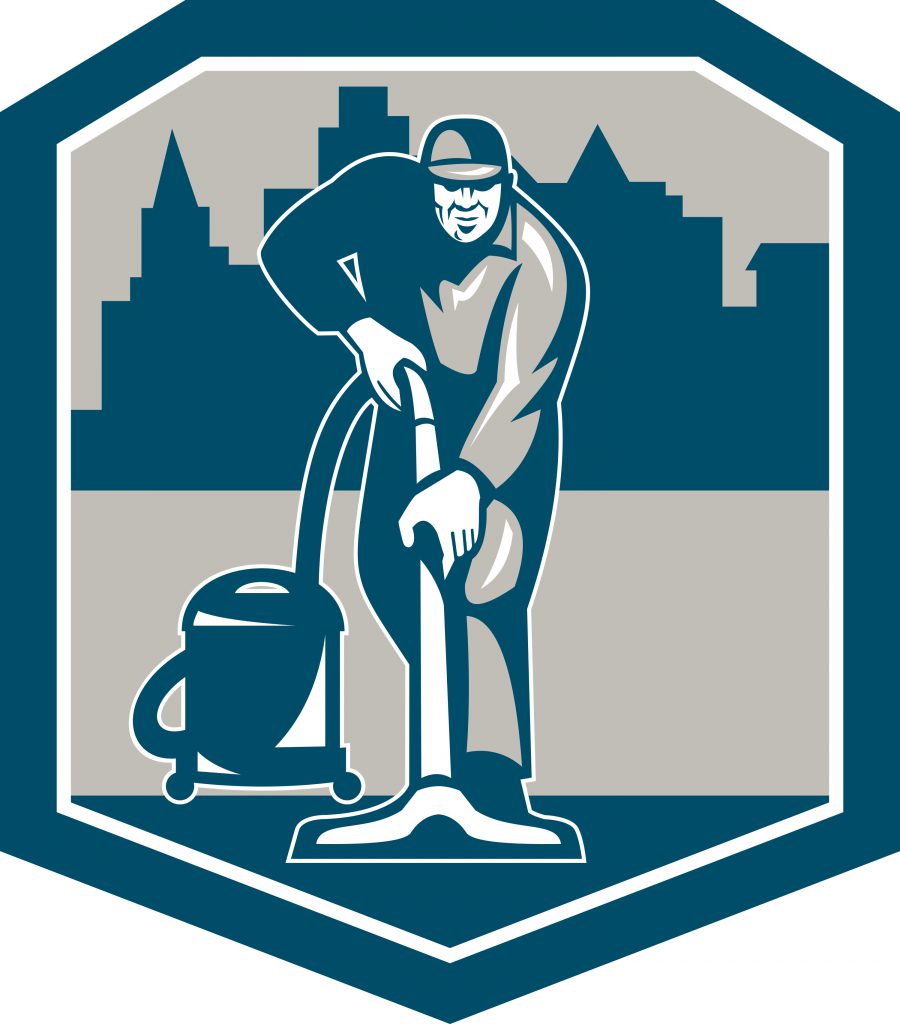
A stain in the carpet, or generally dirty carpets, do not make a rental unit uninhabitable (obviously); therefore, the rules surrounding whether a landlord has to clean a carpet can seem hazy.
Cosmetic repairs are usually not legally required. But in some cases, such as issues with mold or health risks, landlords may have to make such repairs.
If the carpet stain or condition is a threat to human safety, then the landlord should intervene.
To help you determine whether your landlord is legally required to clean or repair your carpet, you could do some research to see if this is addressed in the following:
If you find out that your landlord is legally required to clean the carpet every X years, or deal with the unsightly carpet stain, then the next hurdle is to actually get your landlord to do it.
Although withholding your rent or using a “repair and deduct” procedure might be allowed by law in some states, it is not advisable to do either because these methods can result in eviction.
Instead, why not try out an alternative to get your landlord to clean your carpet (or make other minor repairs)?
Here are four ideas to get your carpet clean:
Ask your landlord about cleaning the carpet or doing another minor repair job. Your landlord might be very willing to fix the problem, especially if it prolongs the life of the carpet.
Plus, it shows that you take pride in the condition of the unit and your landlord will likely want to make things better for you.
Even if you have spoken with your landlord, writing a letter or an email can be helpful.
It gives the landlord time to think over the request. Additionally, a repair request gives you the opportunity to describe the problem and to explain why it is in the landlord’s best interest to clean the stain in the carpet.
Let them know that the stain may become worse and thus more costly to clean later.
If you can’t get your landlord to cooperate, you can propose a formal mediation.
This is probably one of the last resorts that you should consider with regards to cleaning carpet stains. But in some cases, contacting a mediation service can be the only way forward, especially if oral and written requests are ignored.
Mediators work with both you and your landlord to come up with a solution that you both agree is fair.
With that said, if your landlord is a slumlord, they will just ignore your request and act like you are crazy.
If the landlord is not required by law to clean the carpet stain (which is common), and they are not willing to do so, you could try to clean the carpet stain yourself.
There are many methods to clean carpet stains; one of the most effective is by using a combination of vinegar and baking soda.
This method should remove most carpet stains, so it is well worth a try, especially if your landlord is likely to withhold your security deposit if such stains are evident.
Jimmy is a multifamily real estate investor and bank credit officer. He has written a complimentary bank negotiating guide on how to get around the 80% LTV rule.

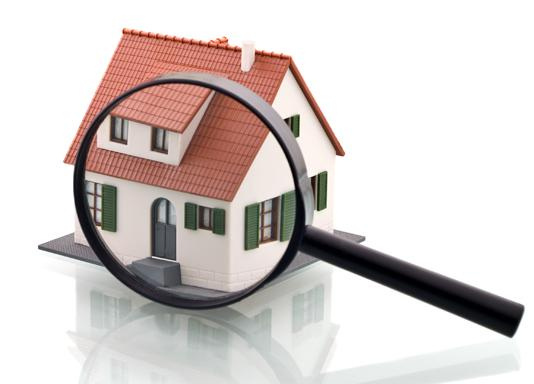
Do-it-yourself household projects have become increasingly popular, but home inspectors are finding a host of safety problems caused by overconfident home owners seeking shortcuts. “Home owners now see these DIY TV shows, which make these household remodeling projects look easy. They can go to a big box store and easily get the materials too,” says Randy Sipe, president of the American Society of Home Inspectors in Spring Hill, Kansas. “They think: ‘How hard can it be?’” Howard Pegelow, a home inspector in Arizona and Wisconsin, says home safety is a top priority in his inspections. He looks for loose carpeting, uneven steps, and water temperature extremes, among other common risk factors. Here are additional concerns noted by Pegelow, Sipe, and others in the field:
Look for: insecurely attached railings and wobbling or improperly sized posts.
“Decks shouldn’t move,” says Scott Patterson, an inspector with Trace Inspections in the Nashville area. Wood decks can collapse if they’re not properly attached to the house or if they rely on the house too much for support. “Fasteners can corrode, which could result in failure of the deck. Many times owners are unaware all these problems exist,” Sipe adds.
Look for: sagging roofs and ceilings.
Open floor plans are appealing, but not when they overlook structural issues, which can happen when home owners fail to identify load-bearing walls. Pay attention to the age of a home, Patterson says. In newer construction, homes tend to have greater side support, which can accommodate open floor plans. Older homes relied more on the center for stability, which can mean trouble for amateur wall-busters.
Look for: wrong pipes used for connections.
A common error Patterson sees in plumbing jobs comes from home owners who purchase a sink and cabinet from a big-box store and handle the installation themselves. Using the wrong pipes often results in costly water damage. Patterson says he commonly sees flexible, accordion-shaped pipe under the sink for the drain, even though they do not comply with residential plumbing codes. Pipes should be smooth and unridged to prevent clogs or waste buildup.
Look for: sensors missing or not facing one another.
Garage doors can pose a big safety threat if improperly installed, Sipe says. The safety sensors must be connected and aligned correctly for the garage door to go down, and if it doesn’t, the owner may just uninstall them. Additionally, a poor connection could be the culprit of the sensor malfunction. Sipe says he often sees the safety cable being threaded incorrectly, which could cause it to break and send the garage door door crashing down.
Look for: missing batteries or disconnected alarms.
Home inspectors aren’t always required to test smoke and carbon monoxide detectors, but many do. Municipalities often suggest installing them within 15 feet of the primary entrance to each sleeping room. Home owners often remove them if they start chirping or disconnect them to prevent false alarms as they cook. “Many times I’ll open it up and find the battery is gone,” Pegelow says. “That is a big safety concern.”
Watch for: exposed wiring and overloaded circuits.
Electrical problems often emerge when an addition has been made to a home, such as a basement or attic remodel. Home owners may add two wires to one circuit breaker where there should be only one. Or, Sipe says, he sees amateurs using a wire that’s too small in the breaker, which could pose a fire hazard.
Melissa Dittmann Tracey is a contributing editor for REALTOR® magazine. She can be reached at mtracey@realtors.org.

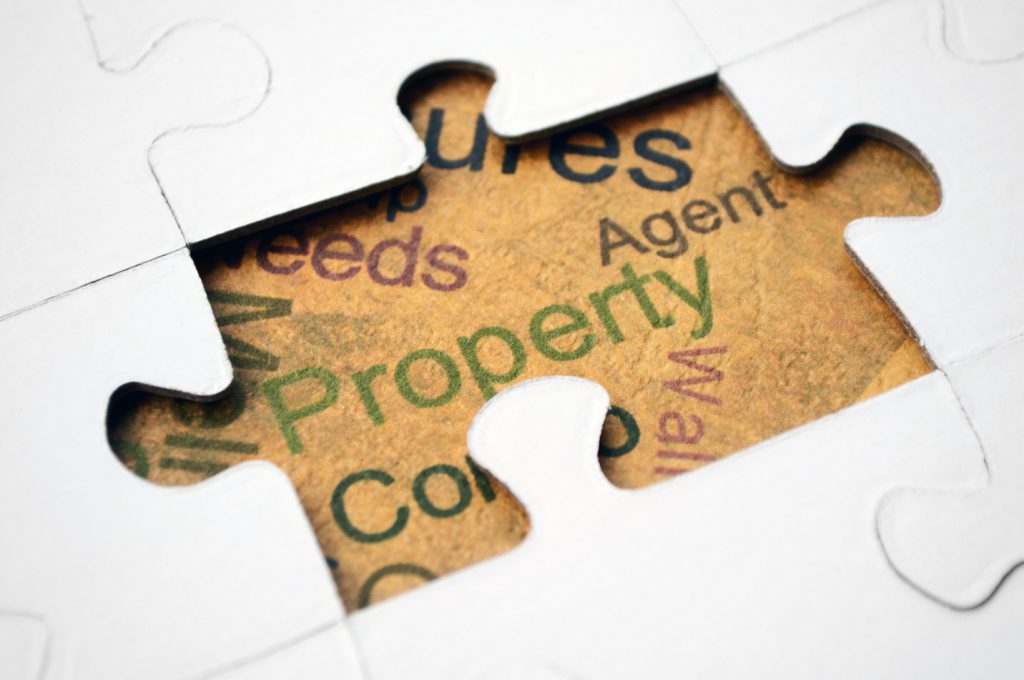
It takes a talented and unique skill set to be a professional property manager. Not everyone is cut out for it, but this article will help you tell the amateurs from the pros.
Property management is a complicated, fast-paced business, but generally speaking, there are some of the traits I see in successful property managers
Obviously, there’s more to being a successful manager, but I’m going to stop there. You see, most of the managers I’ve met only possess half of these traits (at best), and as such, it causes the business to struggle.
I’m not saying that they need to be perfect (I’m sure not!), but there needs to be a pursuit for something bigger and something greater. Managers who push themselves professionally towards these traits are the ones that will be able to keep your rental property occupied, meticulously maintained, and your tenants happy.
A good property manager is worth his or her weight in gold.

Recently, the folks at Active Renter put together an in-depth guide to interviewing a property manager before you hire them. While I think 74 questions is a bit much (okay, way too much), the premise is solid.
With their permission, I’ve picked my top 20 questions to ask a property manager – which would still take 30 minutes or more to ask. In my opinion, these are the most important questions to ask a property manager that you are thinking about hiring.
You want to make sure that you find a property management company that can market, lease, manage, and sell your property. It is also important to make sure that this company can provide top-notch maintenance, conduct inspections, and administer in-depth background checks.
This will help you understand their size. Too few rental units and they are either inexperienced or have lost clients due to poor service. Too many rental units and you will get lost in the shuffle. Look for a property manager with 200 to 600 rental units. That’s when you’ve found your Goldilocks level of “just right.”
Some company owners have never even managed a property. If the company owner has never managed a rental, what is the chance that he or she runs a company that can effectively help you with your investment property?
A property manager should be able to complete a comparable market analysis of all the other available listings near your property. They should use properties that just went off the market and properties that are currently on the market to determine the highest possible rent. They should also have the expertise and experience needed to factor in the unique aspects of your rental property, like a pool or a new kitchen.
The company’s leadership should be investing in the real estate market themselves. Period. If they don’t invest in your market then they lack the understanding they need to help you excel.
Never get locked into a contract you can’t escape. Some companies will try to hold you captive with a contract and others will keep your business with great service. If a company is offering you an inescapable contract, it’s time to look elsewhere.
This question will help you understand your average monthly fee, if any. Some companies will offer a flat rate and others will offer a rate based on the rent amount. Others will offer 3 levels of pricing, which includes a lease only plan, standard plan, and a premium plan.
Again, you’re best off looking for a percentage of collected rents. This motivates your property manager to fill vacancies because they don’t get paid if you don’t have a tenant. It also motivates them to fight for higher rent amounts because this helps their bottom line too. Flat rate companies will get the same pay no matter what, so why would they be motivated to get you a higher rent?
This is a very important question to ask for two reasons. One, many companies will offer a “flat rate,” which sounds great until your property is empty…and they still continue to charge you. If a company is taking money with the property empty, how motivated do you think they are to fill the vacancy?
Again, some companies will try to get you to sign because they offer a low rate. As the saying goes, if it is too good to be true, it probably is. Once you’ve signed, a company that seemed inexpensive will now charge you lots of extra fees. Remember, a property management company has to make money, so if they aren’t making money from the low monthly fee they will find another way to do it.
Some property managers will ask you to sign a contract that forces you to sell the property with them. Don’t fall for this. A quality brokerage would never require this- but rather they would be available if you wanted to use their brokerage services.
Unless you’re living in Back to the Future and you’ve traveled to the 1800’s, your property manager should be able to deposit your check in your account. This saves you time and effort, which is the whole reason you hired them.
Asking tenants to bring checks to an office is a lot like wearing acid washed jeans, it might have been okay in the 80’s, but the times have changed. If your property manager isn’t having your tenants pay online that is a red flag for two reasons. One, it slows down the speed at which you can get paid. Two, it makes it easier for tenants to miss paying the rent. If payment is online, tenants can automate their payment and these two problems are avoided.
Your property is at risk if your property manager doesn’t conduct inspections. This should require a small fee and it will be one of the best investments you can make. It ensures you catch problems before they spiral out of control.
Some companies, such as ourselves, will offer eviction warranty. It is only a small fee, but it will give you major coverage should you need to evict a tenant.
Your property manager should be advertising properties through a variety of channels. If they are still just placing newspaper ads and hoping for the best then you should steer clear.
The average vacancy time after a property is ready should be about 2-4 weeks. Any longer than this suggests the property manager is struggling to find tenants, any shorter than this suggests that your asking rent amount is too low and you might be leaving money on the table. Either of these scenarios is bad for you and your rental property.
If they don’t set a standard then how can they be sure this tenant will make rent? It should go without saying that a tenant needs to have enough income to pay the rent.
Your property manager should give you some input into the lease agreement if there are one or two issues that are important to you. However, if you are putting in lots of additions, you should have just written it yourself. Make sure your prospective property manager is confident in the leases that they have written for tenants by asking this question.
You need to make sure that a prospective property management company doesn’t make a profit any time they do maintenance. If they are willing to charge you for maintenance then your profits could greatly diminish.
Just like payment statements, you should be able to get updates on your portfolio as often as you need them. Your properties are your business and to not offer updates as often as you want would be the equivalent of telling your property manager that they can’t check their email for a week. It is a situation that would guarantee failure.
Lucas is the Chief Landlordologist at Cozy. He has been a successful landlord for over 10 years, with dozens of happy tenants and a profitable income property portfolio.
